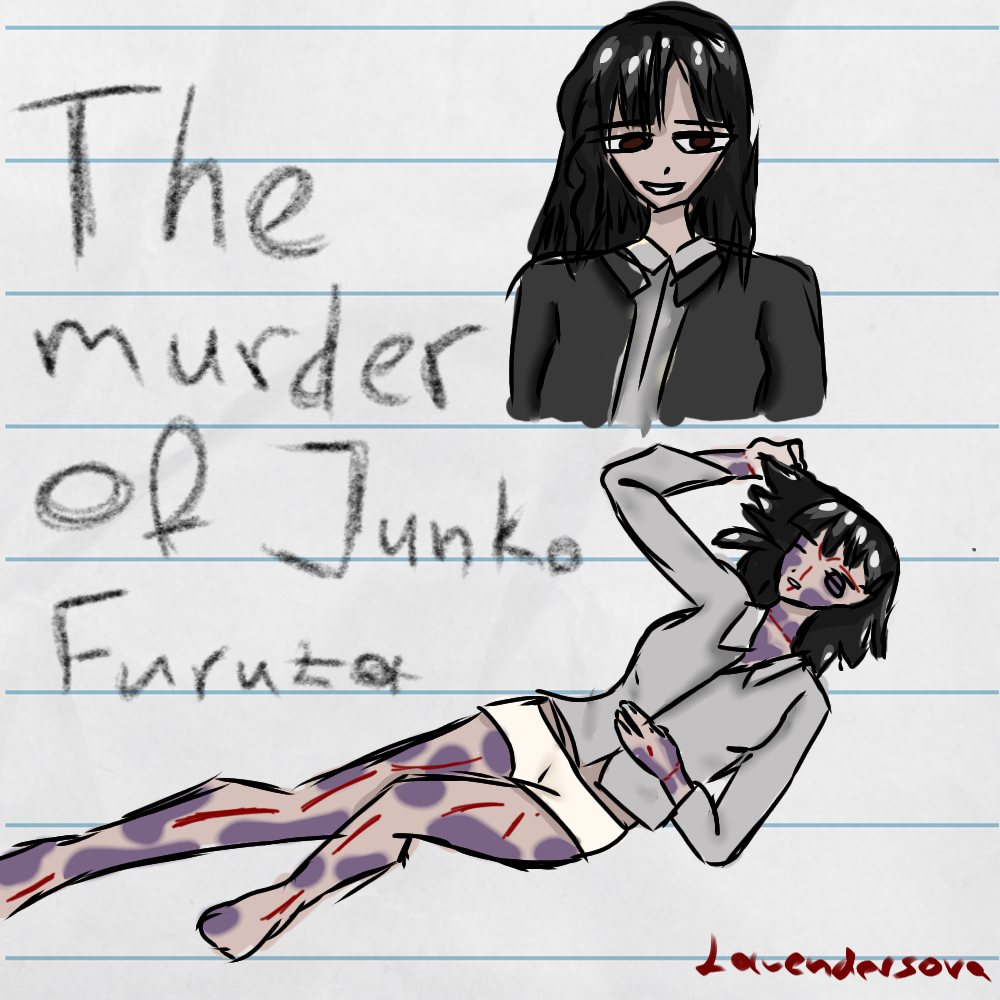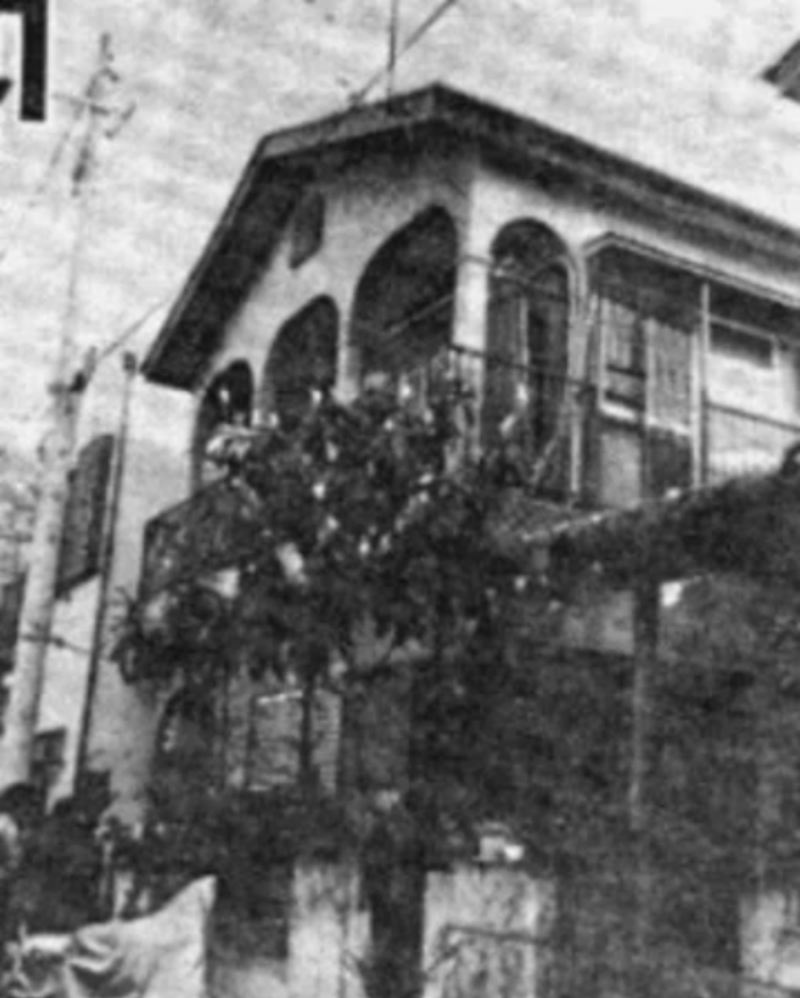When you hear the name Junko Furuta, it might not ring a bell at first. But this name is tied to one of the darkest and most chilling stories in modern Japanese history. The case of Junko Furuta shocked the nation and continues to haunt people even decades later. It’s a story that delves deep into the darkness of human nature, exposing the fragility of life and the importance of understanding the consequences of unchecked power.
Let me tell you, this isn’t just another crime story. It’s a tale of tragedy, resilience, and the need for justice. The name Junko Furuta has become synonymous with a horrifying event that shook Japan to its core and left an indelible mark on its society. Her story is one that demands attention, not just because of its brutality, but because of the lessons it offers about protecting the vulnerable and ensuring justice.
As we dive into the details, remember that this story is more than just a collection of facts. It’s about real people, real lives, and the impact of their actions. So, buckle up, because this journey through the life and case of Junko Furuta is going to be heavy, but it’s necessary. Stick around, and let’s uncover the truth together.
Read also:Has Kate Beckinsale Ever Been Nude A Deep Dive Into The Actresss Career And Controversies
Table of Contents
- Biography of Junko Furuta
- Early Life and Background
- The Incident That Changed Everything
- The Impact on Society
- The Pursuit of Justice
- The Lasting Legacy
- Steps Toward Prevention
- Media Representation
- Psychological Insights
- Conclusion and Reflection
Biography of Junko Furuta
Basic Information
Before we get into the details, let’s take a moment to understand who Junko Furuta was. She wasn’t just a victim; she was a person with dreams, aspirations, and a life cut tragically short.
| Full Name | Junko Furuta |
|---|---|
| Date of Birth | November 13, 1967 |
| Place of Birth | Kawasaki, Japan |
| Occupation | High School Student |
| Date of Incident | November 25, 1988 |
Understanding her background helps us grasp the gravity of what happened. Junko Furuta was a high school student with a bright future ahead of her. Her story is a reminder of how quickly lives can be altered by the actions of others.
Early Life and Background
Junko Furuta grew up in a typical Japanese household, where family values and education were highly prioritized. Like many teenagers, she had aspirations and dreams for her future. Her early life was unremarkable, filled with the usual ups and downs of adolescence.
But what set Junko apart was her determination and her love for learning. She was known to be a diligent student, someone who worked hard to achieve her goals. Her teachers and classmates remember her as a kind and compassionate person who cared deeply about those around her.
The Incident That Changed Everything
The Dark Side of Humanity
On November 25, 1988, everything changed for Junko Furuta. What started as a seemingly ordinary day turned into a nightmare that would shock the world. Four high school boys abducted her, held her captive, and subjected her to unimaginable horrors for over a month.
The details of her ordeal are harrowing, and they expose the darkest side of human nature. The boys, ranging in age from 14 to 17, held her captive in an abandoned building, torturing and abusing her both physically and mentally. This case remains one of the most brutal in Japanese history, and it continues to be a topic of discussion and reflection.
Read also:Barack Obamas Best Friend In College A Closer Look At His College Days
The Impact on Society
The case of Junko Furuta had a profound impact on Japanese society. It forced people to confront uncomfortable truths about the systems in place to protect the vulnerable. The public outcry was immense, leading to calls for reform and stricter penalties for juvenile offenders.
- Increased focus on child protection laws
- Debate over juvenile justice reform
- Raise awareness about mental health and trauma
This incident highlighted the need for a comprehensive approach to addressing violence and abuse, not just in Japan but globally.
The Pursuit of Justice
Legal Repercussions
Justice for Junko Furuta was a long and arduous process. The perpetrators were eventually caught and brought to trial, but the legal system faced criticism for its handling of the case. The youngest offender was only 14 years old, and under Japanese law at the time, juveniles could not be tried as adults.
This led to significant controversy and calls for reform in the juvenile justice system. The case of Junko Furuta became a catalyst for change, prompting lawmakers to reconsider how they handle juvenile offenders and the severity of their crimes.
The Lasting Legacy
Junko Furuta’s legacy lives on through the changes her case inspired. Her story serves as a reminder of the importance of vigilance and the need for a society that prioritizes the safety and well-being of all its members.
Her case has been the subject of numerous documentaries, books, and films, each attempting to shed light on the complexities and nuances of what happened. It’s a story that continues to resonate with people around the world, urging them to reflect on their own roles in creating a safer, more just society.
Steps Toward Prevention
Building a Safer Future
Preventing tragedies like the one that befell Junko Furuta requires a multifaceted approach. It involves not only legal reforms but also education, community support, and awareness campaigns.
- Education programs on consent and respect
- Community initiatives to support at-risk youth
- Mental health resources for both victims and offenders
By taking these steps, we can work toward a future where such horrors are less likely to occur.
Media Representation
The media has played a significant role in shaping public perception of Junko Furuta’s case. Films like "Terrifying Dreams" and documentaries have brought her story to a wider audience, sparking discussions and debates about justice and morality.
However, it’s important to approach these representations with caution. While they can raise awareness, they can also sensationalize and oversimplify complex issues. It’s crucial to remember the humanity behind the headlines and the real people whose lives are forever changed by these events.
Psychological Insights
Psychologists have long been fascinated by the motivations and mindsets of those involved in cases like Junko Furuta’s. What drives individuals to commit such heinous acts? And how can we prevent these impulses from manifesting into actions?
Research into the psychology of violence and trauma offers some insights, but the answers are never simple. It’s a complex interplay of personal, social, and environmental factors that contribute to such outcomes. Understanding these dynamics is key to preventing future tragedies.
Conclusion and Reflection
As we wrap up this exploration of Junko Furuta’s story, it’s essential to reflect on the lessons it offers. Her case is a stark reminder of the importance of justice, protection, and compassion in our society. It challenges us to think critically about the systems we have in place and the ways we can improve them.
I urge you to take action. Whether it’s through supporting organizations that work to protect the vulnerable, engaging in discussions about justice and reform, or simply being more aware of the signs of abuse and neglect, every action counts. Let’s honor Junko’s memory by striving for a safer, more just world.
Share this article, leave a comment, and let’s keep the conversation going. Together, we can make a difference.


